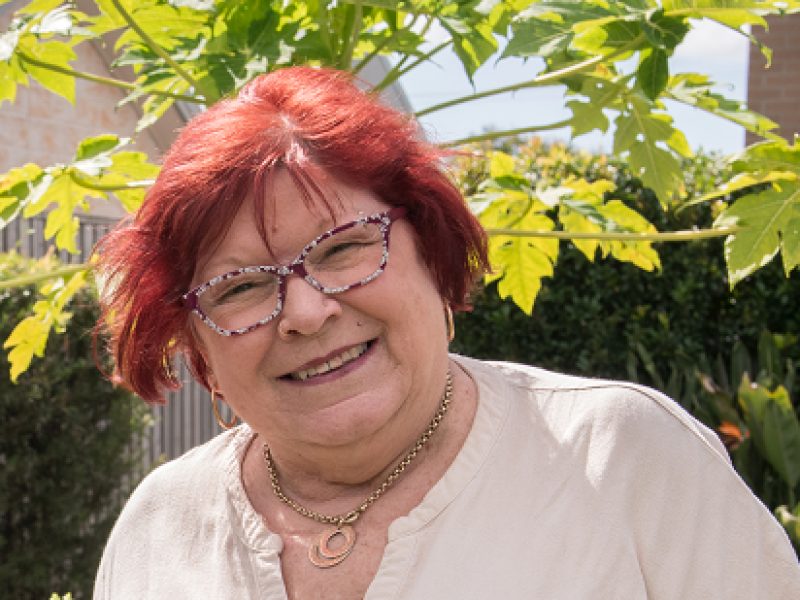Mental Health and Wellbeing Hubs designed to fast track mental health support in the wake of the COVID-19 pandemic, have responded to more than 1600 Victorians’ seeking support in just seven months.
New data shows that the 13 Mental Health and Wellbeing Hubs managed by Mind Australia have been highly successful in reducing psychological distress in clients across Victoria.
Mind is the largest service provider of the Hubs, funded by the Victorian Government, managing 13 of the 30 Hubs across Victoria. Our data shows that:
- Women are accessing Mind-managed Hubs at a higher rate than men. (Female 61%, Male 37%, non-binary/prefer not to say/gender diverse 2%).
- Aboriginal and Torres Strait Islanders are seeking support from Mind-managed Hubs at a disproportionate higher rate to the general population. (5 per cent of Mind Hub clients but 0.8 per cent of the population).
Since the first Hubs opened in late 2021:
- More than 25,000 hours of mental health support have been delivered
- More than 1000 people are currently receiving support
- More than 500 people have been supported and now no longer need mental health assistance
- The number of new clients continues to grow each month.
Mind mental health practitioners have responded to Hub clients struggling with their mental health for a variety of reasons, including:
- Small business owners struggling with the psychological fallout of losing their business.
- Housing shortages exacerbated in regional areas by the influx of residents relocating from Melbourne during the pandemic.
- People with longstanding mental health issues whose recovery went into ‘hibernation’ during lockdown. These people are now emerging, struggling with isolation, depression, anxiety, lack of purpose and loss of a support structure.
“The Hubs are making a real difference in the community,” said Mind Hubs Service Manager Rebecca Matheson Omondi. “These Hubs have removed a lot of the barriers to a very complex system. People can self-refer. There’s no eligibility criteria. You don’t need a referral from your GP. You can ring up and be connected to a support worker.”
“Historically, people have had to be really, really unwell before they can access mental health services, but people can access the Hubs for varying levels of mental health and wellbeing concerns.
“They can sit down and have a cup of tea and a yarn about and talk about what’s going on at home and their social isolation. They can come to us for support to access a GP – they can come to us for a range of things. They don’t need to be deep in crisis before they reach out for support.”
The network of Hubs was established by the Victorian government to respond to the increased need for immediate mental health support in the community as a result of the pandemic.
The Hubs act as a ‘front door’ service to the mental health system. People can get support without any eligibility criteria or a referral from their GP.
Mind-managed Hubs provide a blend of face-to-face support in the community and at operational hubs and telehealth, in line with client preferences.
The Victorian government announced in June that funding for the Hubs will be extended until Mental Health Locals open across the state.
“The Victorian government is to be commended for recognising the value of this service in providing the community with fast and flexible support,” said Mind Australia CEO Gill Callister. “Accessible community-based support like this can make all the difference in helping people address problems before they reach crisis point and hospitalisation.”
Mind-managed Hubs are now running in Wodonga, Wangaratta, Mansfield, Bendigo, Wyndham, Footscray (2), Abbotsford, Greensborough, Coburg, Cowes, Wonthaggi and Benalla.
Mind Lead and Peer Practitioners are also delivering Mind Recovery College group programs through Mind managed Hubs. There are up to 40 Mind Recovery College courses that can be delivered through face-to-face groups at the hubs, online or other spaces identified across the catchments.
Mind practitioners are delivering support with:
- personal recovery
- management of mental health symptoms
- social and community connection
- linking across services
- addressing life stressors, such as threat of homelessness, financial difficulties and social isolation
- re-engagement with services after Covid-19 lockdowns
- support with co-morbidities.
“The Hubs have been a fantastic opportunity for us to gain deep knowledge about the particular mental health and wellbeing stressors and needs of different regions and communities across Victoria,” Ms Callister said.
Mind Australia is one of the largest providers of community-managed psychosocial services in Australia with a range of residential, mobile outreach, centre-based and online services.
Psychosocial supports – like the kind provided by Mind – help people with mental health and wellbeing concerns to manage daily activities, rebuild and maintain connections, engage with education and employment, and participate fully in the community. These are supports that help people take positive steps in their recovery journey.
To access Mental Health and Wellbeing Hubs services call 1300 375 330.
If this article raises immediate concerns for you, please call Lifeline on 13 11 14. Aboriginal and Torres Straits Islanders can also call 13 YARN (13 92 76) a 24/7 national crisis support telephone service staffed by Aboriginal and Torres Strait Islander peoples.
